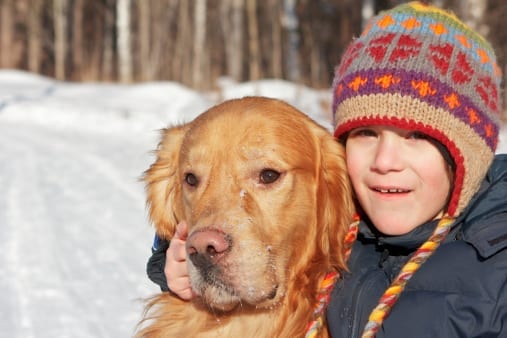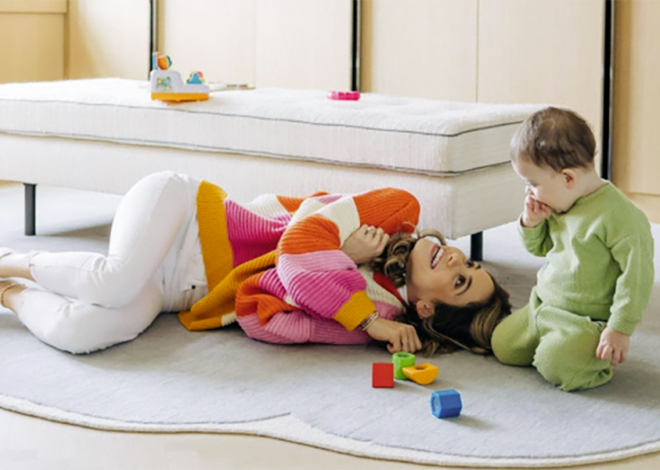 Sad story alert: We just put our dog to sleep today (hours before this writing). Our lab/Australian shepherd mix was 15 1/2 years old and our son with autism had known her his own life.
Sad story alert: We just put our dog to sleep today (hours before this writing). Our lab/Australian shepherd mix was 15 1/2 years old and our son with autism had known her his own life.
How did our son handle saying goodbye to the family dog?
Our son was a superstar today.
With any child, you don’t quite know how they’re going to handle these things. When I put my cat down, it was just me, so I had no experience with putting down an animal with a family.
But, on top of being just ten years old, our son has autism. This means that he can disconnect emotionally quite easily and/or not act emotionally appropriate in any given situation.
What did our son do?
When I was talking to the vet on my cell phone, my son followed my instructions and calmly called Daddy on the other phone. Then, he waited patiently while my husband, the vet, and I were talking (on two phones).
Then, our son followed my directions for getting our dog (who was bleeding) and himself into the car without any issues. I needed his help, asked for it, and received it without complaint.
This situation could have gone a bunch of different ways, of course. But, I’m glad to report that it didn’t and our son responded quite well.
Typically, I’m calm under pressure, but even this time — inside — I was jumping around at the thought of what this could mean for my dog. I kind of felt it was not good. And, my son could have picked up on that and fallen apart, but he didn’t.
What about with the decision to put down a family pet?
Our son remained with us in the room that the vet provided to us the whole time. He did not display any of his typical OT issues, hand flapping, the need to run, etc. during this time.
The veterinarian talked with us for about twenty minutes giving us various options, most of which we felt were not great options for our old pet’s quality of life.
Our son listened at times, but mostly he watched a movie on his DVD player.
However, when it came time for me and husband to discuss the future of our dog, we asked our son to put away the DVD player so we could include him in the conversation. He did this without a problem.
Did your son understand and participate in this decision?
As much as any ten-year-old could do in this situation, I felt our child with autism did great.
We discussed with our child how Mommy and Daddy were talking about and thinking about the future of our old dog. We discussed things like “suffering,” what it meant to “put an animal to sleep,” and whether or not we felt we could take care of our dog if we were to take her home.
In that scenario, we would more than likely be facing all of these issues again at some unknown time. She was in bad shape and there was a possibly she could even die in our house overnight. We felt that that scenario might be even more traumatic for all of us.
A side note: We had been gently preparing our son for this day. We had explained a few times during the past year, how we had one old dog and one young dog and that someday our older dog may not be with us any longer. Our son asked questions and we did our best to prepare him.
While my husband and I were discussing our dog, we both cried several times. I was especially very emotional since this dog was my “baby.”
Twice, our son cried – and part of me was glad to see this.
Again, he’s a child with autism and you never know how they’re going to respond, if they can respond at all. But, our son displayed his emotions appropriately, hugged us often, and even attempted to make me feel better. He was emotionally and appropriately affected!
When the conversation began to sound more like a decision to put our dog down, we then discussed an option with our son – whether he felt he wanted to say goodbye to his dog and, if he did want to say goodbye, how he wanted to do it.
What did your child decide?
We gave him his options as follows:
1. You can leave without saying goodbye or
2. You can say goodbye while his dog was still alive, and then go home.
We told him he didn’t have to decide immediately.
My husband and I talked to the vet and made the decision to put our dog to sleep.
It was soon after this that our son decided that he wanted to say goodbye to our dog before she was put to sleep. We made sure he felt he was okay to handle it, and he said he was.
After the vet explained to us how it was going to happen, my husband and I stepped out of the room and made sure we were on the same page about when our child should leave.
We decided that our child can say goodbye but that he would leave with my husband and not be in the room when the vet put our dog to sleep.
With our dog in the room, our son stroked her fur and said “goodbye” and “I love you” three times. My husband spent more time with her, and our son was fine during all of it.
My husband and son left, and I remained with the dog.
What did I learn from this experience?
Emotional experiences are typically a long road to hoe with our kids, but this experience – even though it was very sad and potentially traumatic – I felt was a huge step for our son. He acted appropriately and caused no problems for us at all. He even held the leash in the car while I was driving to the vet.
Additionally, my husband and I included our son in this family decision, and we were glad we did. Losing a family pet is hard on everyone in a family. Even for a ten-year-old, whether he has autism or not, I believe we made our son feel like he was a part of this huge family decision.
We hope that, in the future, our son now knows that he can be a part of big decisions. His role in this family is just as important as mine or daddy’s when it comes to the life of the family dog.
Foot note #1: The night we put our dog to sleep was a school night, so I sent our child’s aide an email just to let her know that our son may mention the loss of his dog.
Foot note #2: Goodbye, Taylor. You were an awesome dog!
To Find Kimberly Kaplan:
www.kimberlykaplan.com
www.smashwords.com or Amazon Kindle ebook “A Parents’ Guide to Early Autism Intervention”
Twitter: @tipsautismmom





